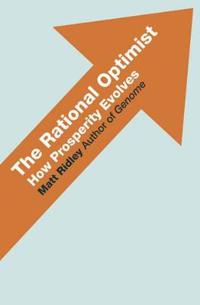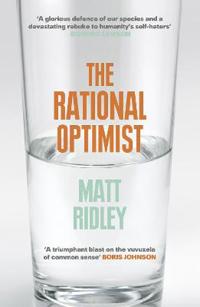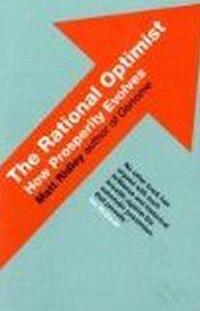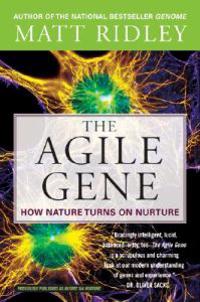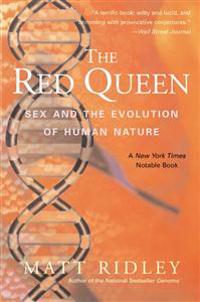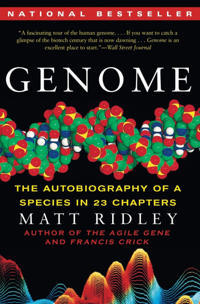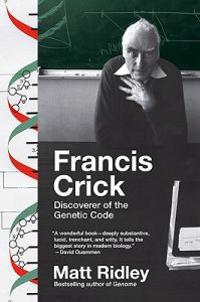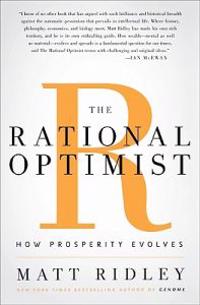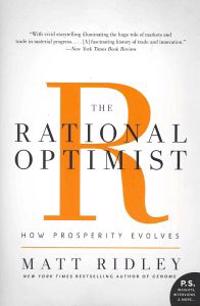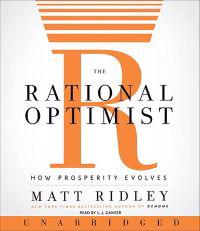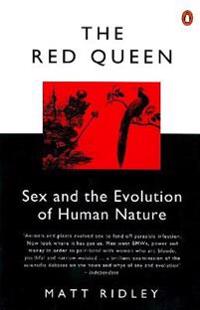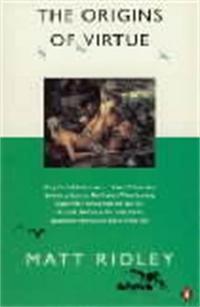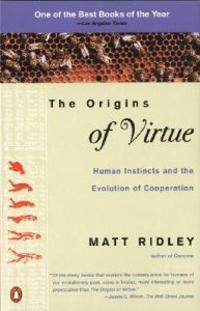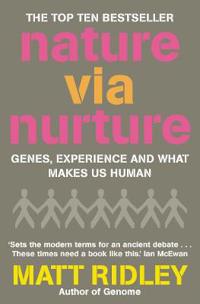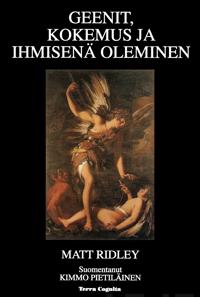Rational Optimist (Inbunden)
avMatt Ridley
ISBN: 9780007267118 - UTGIVEN: 201005Matt Ridley, acclaimed author of the classics Genome and Nature via Nurture, turns from investigating human nature to investigating human progress. In The Rational Optimist Ridley offers a counterblast to the prevailing pessimism of our age, and proves, however much we like to think to the contrary,[...]
The Rational Optimist (Storpocket)
avMatt Ridley
ISBN: 9780007267125 - UTGIVEN: 201103Shortlisted for the BBC Samuel Johnson Prize for Non-fiction 2011. Life is on the up. We are wealthier, healthier, happier, kinder, cleaner, more peaceful, more equal and longer-lived than any previous generation. Thanks to the unique human habits of exchange and specialisation, our species has foun[...]
Rational Optimist (Häftad)
avMatt Ridley
ISBN: 9780007378906 - UTGIVEN: 2010-05Matt Ridley, acclaimed author of the classics Genome and Nature via Nurture, turns from investigating human nature to investigating human progress. In The Rational Optimist Ridley offers a counterblast to the prevailing pessimism of our age, and proves, however much we like to think to the contrary,[...]
The Agile Gene: How Nature Turns on Nurture (Häftad)
avMatt Ridley
ISBN: 9780060006792 - UTGIVEN: 200407A historical analysis of the nature-versus-nurture debate documents the 2001 discovery that there are fewer genes in a human genome than previously thought and considers the argument that nurture elements are also largely responsible for human behavior. Originally published as Nature Via Nurture. Re[...]
The Red Queen: Sex and the Evolution of Human Nature (Häftad)
avMatt Ridley
ISBN: 9780060556570 - UTGIVEN: 200304Referring to Lewis Carroll's Red Queen from Through the Looking-Glass, a character who has to keep running to stay in the same place, Matt Ridley demonstrates why sex is humanity's best strategy for outwitting its constantly mutating internal predators. The Red Queen answers dozens of other riddles [...]
Genome: The Autobiography of a Species in 23 Chapters (Häftad)
avMatt Ridley
ISBN: 9780060894085 - UTGIVEN: 200605The genome's been mapped.But what does it mean?Arguably the most significant scientific discovery of the new century, the mapping of the twenty-three pairs of chromosomes that make up the human genome raises almost as many questions as it answers. Questions that will profoundly impact the way we thi[...]
Francis Crick: Discoverer of the Genetic Code (Häftad)
avMatt Ridley
ISBN: 9780061148453 - UTGIVEN: 200911Francis Crick--the quiet genius who led a revolution in biology by discovering, quite literally, the secret of life--will be bracketed with Galileo, Darwin, and Einstein as one of the greatest scientists of all time. In his fascinating biography of the scientific pioneer who uncovered the genetic co[...]
The Rational Optimist: How Prosperity Evolves (Inbunden)
avMatt Ridley
ISBN: 9780061452055 - UTGIVEN: 201005Life is getting better--and at an accelerating rate. Food availability, income, and life span are up; disease, child mortality, and violence are down -- all across the globe. Though the world is far from perfect, necessities and luxuries alike are getting cheaper; population growth is slowing; Afric[...]
The Rational Optimist: How Prosperity Evolves (Häftad)
avMatt Ridley
ISBN: 9780061452062 - UTGIVEN: 201106For two hundred years the pessimists have dominated public discourse, insisting that things will soon be getting much worse. But in fact, life is getting better--and at an accelerating rate. Food availability, income, and life span are up; disease, child mortality, and violence are down all across t[...]
The Rational Optimist: How Prosperity Evolves (CD-bok)
avMatt Ridley
ISBN: 9780061992629 - UTGIVEN: 2010-05Life is getting better--and at an accelerating rate. Food availability, income, and life span are up; disease, child mortality, and violence are down -- all across the globe. Though the world is far from perfect, necessities and luxuries alike are getting cheaper; population growth is slowing; Afric[...]
The Red Queen (Storpocket)
avMatt Ridley
ISBN: 9780140167726 - UTGIVEN: 199410Sex is as fascinating to scientists as it is to the rest of us. A vast pool of knowledge, therefore, has been gleaned from research into the nature of sex, from the contentious problem of why the wasteful reproductive process exists at all, to how individuals choose their mates and what traits they [...]
The Origins of Virtue (Storpocket)
avMatt Ridley
ISBN: 9780140244045 - UTGIVEN: 199710Why are people nice to each other? What are the reasons for altruism? Matt Ridley explains how the human mind has evolved a special instinct for social exchange, offering a lucid and persuasive argument about the paradox of human benevolence.[...]
The Origins of Virtue: Human Instincts and the Evolution of Cooperation (Häftad)
avMatt Ridley
ISBN: 9780140264456 - UTGIVEN: 199804If, as Darwin suggests, evolution relentlessly encourages the survival of the fittest, why are humans compelled to live in cooperative, complex societies? In this fascinating examination of the roots of human trust and virtue, a zoologist and former American editor of the Economist reveals the resul[...]
Nature Via Nurture (Häftad)
avMatt Ridley
ISBN: 9781841157467 - UTGIVEN: 200405Acclaimed author Matt Ridley's thrilling follow-up to his bestseller Genome. Armed with the extraordinary new discoveries about our genes, Ridley turns his attention to the nature versus nurture debate to bring the first popular account of the roots of human behaviour.[...]
Genome (Pocket)
avMatt Ridley
ISBN: 9781857028355 - UTGIVEN: 2000-03-16This text attempts to refute suggestions that genetics "prove" biological determinism, arguing instead that free will itself is in the genes. It proposes that everything that makes us human can be read in our genes and considers the 21st century, when the entire human genome will be mapped out.[...]

